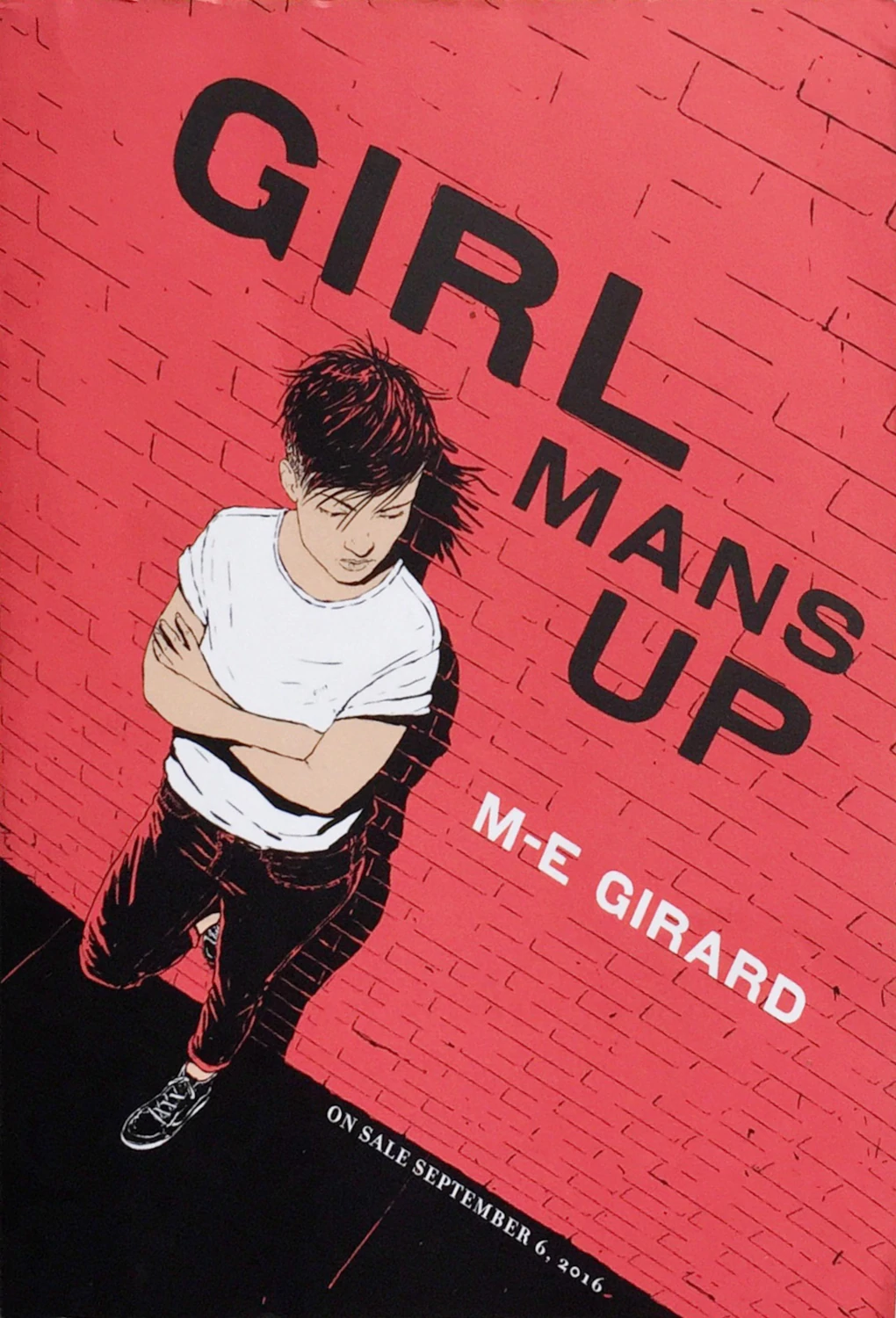
Girl Mans Up, by M-E Girard
Words By Kaley Kiermayr
Pen, the video-game-loving, tough-as-nails protagonist of M-E Girard’s YA novel Girl Mans Up, has always had a strong sense of self. Still, fitting in and being “loyal” to her friends, flirting with girls, and being a “respectful” child to two traditional Portuguese parents means that she too often has to compromise how she wants to walk through the world. In Girl Mans Up, Pen learns how to prioritize respect and loyalty for herself after feeling like she must sacrifice her own needs and self-expression for others. She tell us: “I don’t feel wrong inside myself. I don’t feel like I’m someone I shouldn’t be. Only other people make me feel like there’s something wrong with me.”
Girl Mans Up does not deviate too much from the traditional YA narrative of self-determination and self-discovery, but it is refreshing in its approach. In the company of LGBT YA stories, which often follow a traditional “coming out” narrative, Girl Mans Up stands out because Pen is not focused on finding a label that can convey all of her. There is no clear moment of arrival at adulthood or at at a fixed sense of identity. Instead, Pen learns to confront the frustrating moments where her identity contains conflict and confusion—and she lets them exist in all their messiness. If anything, the resolution of Pen’s narrative is that there is room for non-resolution. When Pen tries to conform to “normal” gender expectations in order to please those around her, she’s trapped in an untruthful performance that leads to unhappiness. In a scene that had me bracing for the worst, Pen confronts her own mother while dressed “in drag” (the way her mother pressures her to dress): a skirt and heels. Pen also struggles to cut ties with her friends who expect her to be “a better dude” but not “too much of a guy.” A friendship with her best friend’s ex, a connection with a cute girl at the mall, and the support of her ostracized brother give Pen reassurance that she can fully embrace herself and be accepted by others. Ultimately, Pen is empowered by the ability to understand gender as a malleable, fluid concept. She learns that to “man up” requires strength of character unrelated to gender. Perhaps YA literature, too, can be empowered by a narrative structure that emphasizes that we don’t have to feel pressured to figure out our identity in order to arrive at “adulthood.”
Midway through the novel, Pen explains, “I don’t want her to think of me as a boy, or a boy substitute, though. I want to be a boyfriend who is a girl.” “Oh my god!” I said aloud, marking the page and immediately messaging my girlfriend. Like me, her enthusiasm over M-E Girard’s Girl Mans Up is related to the fact that we’re starving for variety in our queer characters and stories. Too often I feel as if the media I found as a young girl only showed me two or three of the same queer narratives over and over again. Girl Mans Up certainly contains a narrative that was missing in contemporary LGBT YA and in literature. M-E Girard has written a YA novel that boasts a strong, unapologetic, as-of-yet-gender-label-less (and that’s okay!) protagonist published by HarperTeen—and that is exciting news for LGBT readers hungry for inclusion and representation in mainstream literature.